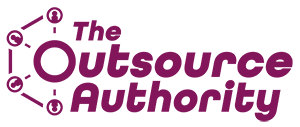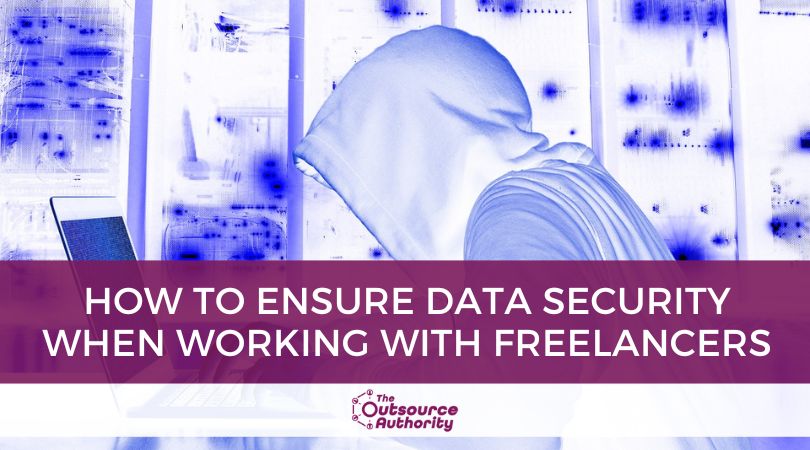Ensuring data security is crucial when working with freelancers. 🌐 Whether you’re handling customer data, financial records, or proprietary business information, protecting your data is essential. Many business owners worry about the potential risks, like data breaches or unauthorized access, especially when freelancers work remotely.
Let’s face it: the thought of sharing sensitive information with freelancers can be daunting. You might wonder, “How can I keep my data safe?” or “What if something goes wrong?” The good news is that with the right strategies in place, you can confidently work with freelancers while keeping your data secure.
In this blog, we’ll explore practical tips and tools to safeguard your information. We’ll discuss how to choose the right freelancers, set clear data security expectations, use secure communication channels, and monitor access regularly. By following these best practices, you’ll be well-equipped to protect your business and enjoy the benefits of working with talented freelancers.
Ready to fortify your data security and make the most of freelance talent? Let’s dig in and uncover the secrets to keeping your information safe and secure. 🚀
Identifying the Risks🚨
When working with freelancers, it’s important to understand the potential risks to your data security. Here are some common concerns:
- Data Breaches: Freelancers often work remotely, which can expose your data to various security threats. Their personal devices may not have the same level of security as your company’s systems, increasing the risk of data breaches.
- Unauthorized Access: Granting access to sensitive information can be risky if the freelancer doesn’t follow proper security protocols. Unauthorized access can lead to data leaks, misuse of information, and even identity theft.
- Lack of Control: Unlike in-house employees, freelancers operate independently. This lack of direct oversight can make it challenging to ensure they follow your data security policies consistently.
- Phishing and Social Engineering: Freelancers may be more susceptible to phishing attacks and social engineering tactics, which can compromise your data. Cybercriminals often target individuals with deceptive emails or messages to gain access to sensitive information.
- Compliance Issues: Different regions have varying data protection regulations. Freelancers may not be aware of or comply with these regulations, potentially putting your business at risk of legal consequences.
Potential Scenarios:
- A freelancer’s laptop gets stolen, and it contains unencrypted sensitive client data.
- A freelancer unknowingly downloads malware that gives hackers access to your company’s database.
- Inadequate password management by a freelancer leads to unauthorized access to your company’s systems.
Best Practices for Ensuring Data Security 💡
To safeguard your data when working with freelancers, it’s essential to establish clear guidelines and protocols. Here are some best practices to help you maintain data security:
Use of Non-Disclosure Agreements (NDAs)
Non-Disclosure Agreements (NDAs) are crucial when sharing sensitive information with freelancers. An NDA legally binds the freelancer to confidentiality, preventing them from disclosing any proprietary information. Ensure that the NDA covers the scope of work, the type of information to be protected, and the duration of the confidentiality obligation.
Benefits of NDAs:
- Legal Protection: Provides a legal recourse if a freelancer breaches confidentiality.
- Trust Building: Establishes trust between you and the freelancer, showing that you take data security seriously.
How to Implement:
- Draft a clear and comprehensive NDA.
- Review it with a legal expert to ensure all necessary clauses are included.
- Have the freelancer sign the NDA before starting any work.
Secure File Sharing Methods and Tools
Using secure file-sharing methods is vital to protect your data from unauthorized access. Opt for encrypted email services and cloud storage solutions with robust security features.
Recommended Tools:
- Encrypted Email: Services like ProtonMail offer end-to-end encryption, ensuring your emails remain private and secure.
- Cloud Storage: Use platforms like Google Drive, Dropbox, or OneDrive with advanced security settings. Enable permissions and access controls to restrict who can view and edit files.
Best Practices:
- Regularly update passwords and use strong, unique passwords for each account.
- Enable two-factor authentication (2FA) for an added layer of security.
- Regularly review and update access permissions.
Regular Updates and Security Training for Freelancers
Keeping freelancers informed about the latest security practices and potential threats is crucial for maintaining data security.
Security Training Tips:
- Onboarding: Include a security training session as part of the freelancer onboarding process.
- Regular Updates: Send periodic updates about new security threats and best practices.
- Resources: Provide access to security guidelines and resources, such as webinars, articles, or e-books.
Why It Matters:
- Proactive Defense: Helps freelancers recognize and mitigate potential security threats.
- Consistency: Ensures that freelancers are aligned with your company’s data security policies.
Tools and Software Recommendations
for Secure Collaboration 🔧
To ensure data security when working with freelancers, utilizing the right tools and software is crucial. Here are some essential recommendations to enhance secure collaboration:
Password Management Tools 🔐
Using robust password management tools can significantly improve security by generating and storing strong, unique passwords for each account.
Top Recommendations:
- LastPass: Offers secure storage and easy access to passwords, along with features like password sharing and dark web monitoring.
- 1Password: Provides strong password generation, secure storage, and convenient password sharing with team members.
- Dashlane: Includes features like password health reports, dark web monitoring, and a VPN for added security.
Why It Matters:
- Security: Ensures all accounts are protected with strong, unique passwords.
- Convenience: Simplifies password management and reduces the risk of password reuse.
Two-Factor Authentication (2FA) Systems 🔒
Two-Factor Authentication adds an extra layer of security by requiring a second form of verification in addition to the password.
Top Recommendations:
- Google Authenticator: Generates time-based codes for 2FA, adding an extra layer of security.
- Authy: Offers multi-device support and secure cloud backups for easy access to 2FA codes.
- Duo Security: Provides comprehensive 2FA solutions, including push notifications and biometric authentication.
Why It Matters:
- Enhanced Protection: Prevents unauthorized access even if passwords are compromised.
- Ease of Use: Simple setup and use, ensuring both security and convenience.
Secure Project Management Tools 📋
Using secure project management tools ensures that project data and communications are protected.
Top Recommendations:
- Trello: Offers secure collaboration with features like permission controls, data encryption, and two-factor authentication.
- Asana: Provides robust security features, including SSO, data encryption, and comprehensive access controls.
- Basecamp: Includes secure communication and project management features, along with strong encryption and user permissions.
Why It Matters:
- Data Security: Protects sensitive project information from unauthorized access.
- Collaboration: Facilitates secure and efficient collaboration among team members and freelancers.
Monitoring and Auditing Freelancer Activities to Ensure Compliance 📊
Ensuring data security when working with freelancers isn’t just about setting up protocols and using the right tools; it also involves actively monitoring and auditing their activities. This continuous vigilance helps maintain compliance and safeguards your sensitive information. Here’s how to effectively monitor and audit freelancer activities:
Establish Clear Guidelines and Expectations 📋
Start by setting clear expectations about data security and compliance. This includes:
- Detailed Contracts: Include specific clauses about data security practices and compliance in your freelance contracts.
- Regular Check-Ins: Schedule regular meetings to discuss project progress and any security concerns.
Why It Matters:
- Clarity: Ensures freelancers understand their responsibilities regarding data security.
- Accountability: Helps in holding freelancers accountable for their actions.
Utilize Monitoring Tools 🛠️
Employ tools that provide insights into freelancer activities and ensure they are adhering to your security protocols.
Top Recommendations:
- Time Tracking Software: Tools like Toggl and Hubstaff not only track time but also capture screenshots to monitor activities.
- Project Management Tools: Platforms like Asana and Trello offer activity logs that track changes and updates in real-time.
- Security Monitoring Tools: Software like Sentry and Datadog can help in tracking security breaches and anomalies.
Why It Matters:
- Transparency: Provides visibility into freelancer activities and ensures they are following protocols.
- Proactive Security: Enables early detection of potential security issues, allowing for swift action.
Regular Audits and Reviews 🕵️♂️
Conducting regular audits and reviews of freelancer activities is crucial for maintaining data security. This includes:
- Monthly Reports: Require freelancers to submit monthly reports detailing their activities and any security measures taken.
- Security Audits: Periodically audit the security practices and compliance of your freelancers to identify and rectify any issues.
Why It Matters:
- Continuous Improvement: Helps in identifying gaps and improving security practices.
- Compliance: Ensures ongoing compliance with your data security protocols.
Foster Open Communication 💬
Encourage freelancers to report any security concerns or breaches immediately. Creating an open line of communication builds trust and promotes a proactive approach to security.
Why It Matters:
- Responsiveness: Enables quick action in case of any security incidents.
- Trust: Builds a trustworthy relationship, ensuring freelancers feel responsible for security.
By following these best practices, you can enjoy the benefits of working with freelancers while maintaining robust data security. Ready to take your freelancer management to the next level? Implement these strategies and secure your business today! 🚀
Advantages of Secure Freelancer Collaboration
Ensuring data security when working with freelancers goes beyond protecting sensitive information—it builds trust and fosters strong, long-term relationships. Here’s how secure practices can benefit your business:
Building Trust and Long-Term Relationships 🤝
When freelancers know that you prioritize data security, they are more likely to trust you and feel valued. This trust translates into:
- Loyalty: Freelancers are more inclined to stay with clients who maintain secure and professional working environments.
- Better Performance: A sense of security can boost freelancers’ morale, leading to higher-quality work and dedication.
Increased Productivity and Peace of Mind 🧘♂️
Data breaches can be stressful and time-consuming to address. By ensuring data security, you can:
- Focus on Growth: With data security protocols in place, you can focus on strategic growth rather than worrying about potential breaches.
- Smooth Workflow: Secure collaboration tools and practices streamline processes, reducing downtime and increasing productivity.
Enhanced Reputation and Reliability 🌟
A business known for its secure practices stands out in the competitive market. Secure data practices enhance your reputation by:
- Attracting Top Talent: Skilled freelancers prefer to work with clients who prioritize security, increasing your chances of attracting top talent.
- Client Trust: Clients and partners are more likely to trust and engage with businesses that demonstrate a commitment to data security.
Protecting your data while working with freelancers is crucial for maintaining trust, productivity, and reputation. Implementing clear guidelines, using secure tools, and continuously monitoring activities can safeguard your business. Ready to enhance your data security? Download our free guide, “Outsource with Confidence: What I Learned from Buying 1,000 Gigs on Fiverr,” and take the first step towards secure and successful freelancer collaborations! 🚀




